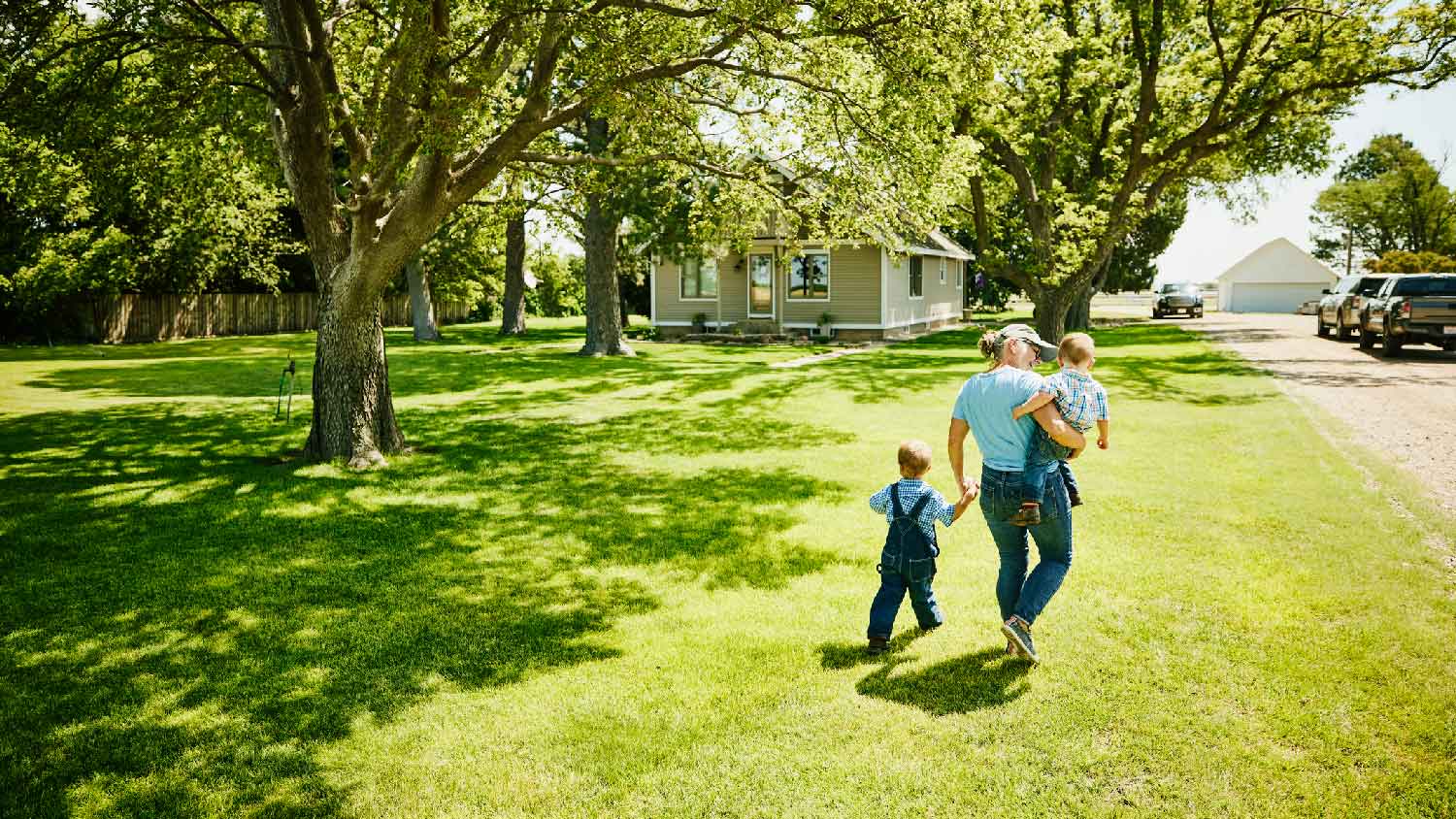Bermuda Grass vs. Kentucky Bluegrass: What’s the Difference?
Decode the differences between these two turfs


Bermuda grass, a warm-season grass, is cost-effective, durable, and adaptable to various soil conditions.
Kentucky bluegrass, a cool-season grass, has a soft texture and a brilliant bluish-green color.
Kentucky bluegrass excels in cold tolerance against frigid winters.
Bermuda grass thrives in warmer climates with superior heat tolerance.
Bermuda grass and Kentucky bluegrass are two exceptionally beautiful types of grass for lawns. Kentucky bluegrass envelops a landscape in its signature blue-green tint, while Bermuda grass captivates with a carpet of vibrant green. Both grasses thrive under different conditions and have their own benefits and drawbacks to consider with the help of a lawn care professional. Let’s explore the differences between Bermuda grass vs. Kentucky bluegrass

Bermuda Grass vs. Kentucky Bluegrass: Key Differences
It’s essential to consider the differences between cool-season vs. warm-season grasses when comparing Bermuda grass against Kentucky bluegrass. Bermuda grass is a warm-season grass, making it best suited for climates that don’t experience extreme cold. Kentucky bluegrass, a cool-season grass, is better for areas with cooler climates.
While each grass has its own aesthetic appeal and unique benefits—such as Kentucky bluegrass’ soft texture or Bermuda grass’ remarkable durability—climate should be a key deciding factor in which is best for your lawn. If you’re unsure which type of grass will work best in your home’s location, consult a local lawn care expert who can help you choose the right variety and make a planting plan.
What Is Bermuda Grass?
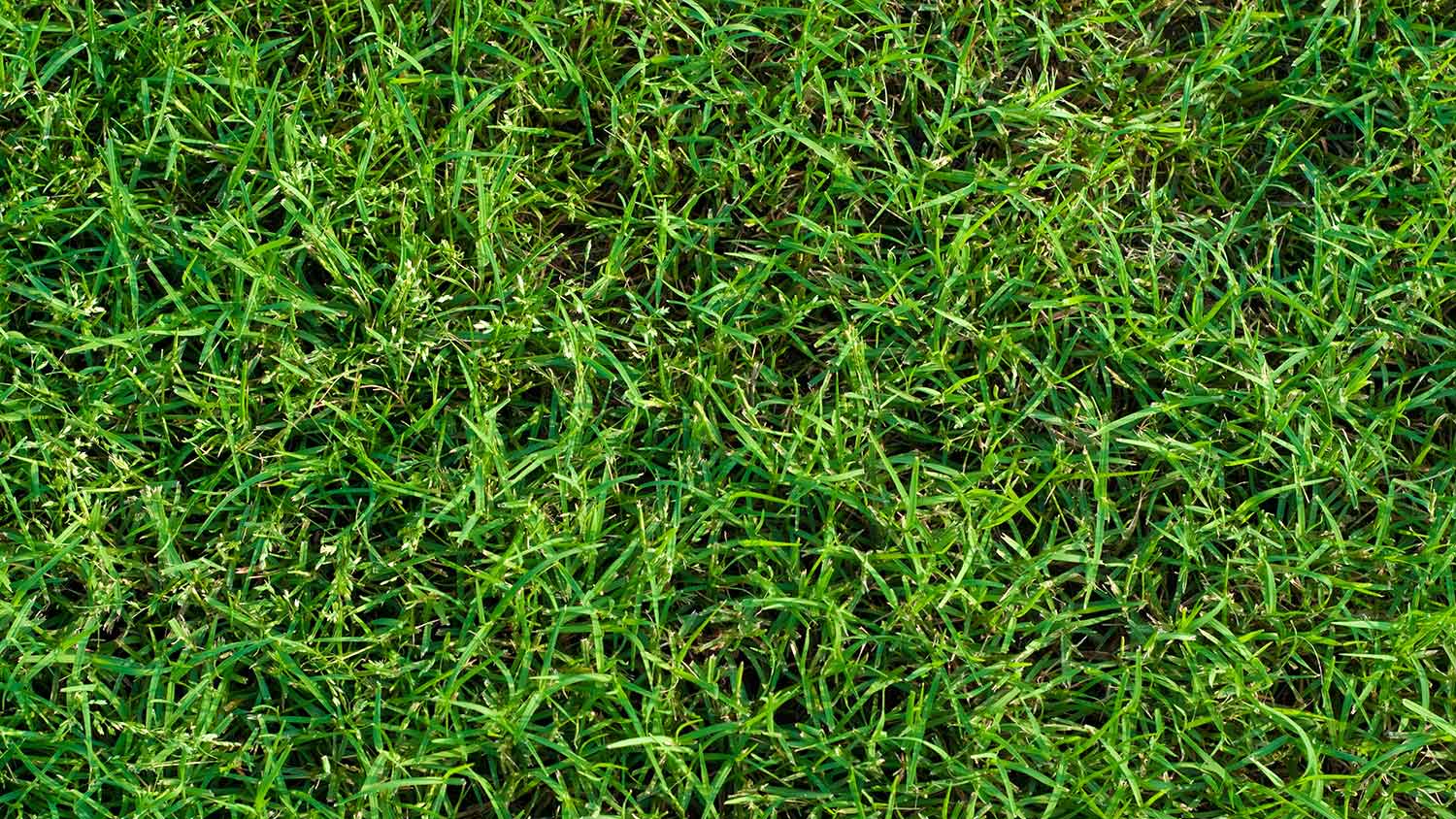
Bermuda grass is a type of warm-season grass that thrives in late spring and summer. It has a lush medium to dark green appearance and creates a thick carpet of vibrant color. During colder months, this turf grass enters a dormant phase and turns brown. However, in regions without serious frosts, its color stays brilliant year-round.
| Pros | Cons |
|---|---|
| Thick and lush appearance | High maintenance |
| High durability | Low cold tolerance |
| Affordable | Susceptible to thatch problems |
| High drought tolerance | Difficult to remove |
| Adaptable to different soils | Low shade tolerance |
Best for:
Warm climates
Golf courses
Soccer fields
High-traffic residential lawns
Pros of Bermuda Grass
One of the notable advantages of Bermuda grass is its cost-effectiveness compared to other warm-season grasses. Whether planted from seed, sod, or plugs, it offers an affordable yet aesthetically appealing lawn. It’s also highly durable, and bounces back against heavy foot traffic quicker than its durable competitors, such as Zoysia grass.
Another key feature of Bermuda grass is its thick, deep root system. This characteristic enhances its durability and allows it to adapt well to a range of soil conditions, thriving in soils with a pH ranging from 5½ to 7. All that said, it’s an extremely versatile and resilient option for a vibrant and enduring lawn.
Cons of Bermuda Grass
While Bermuda grass offers many advantages, it has higher maintenance needs. Consistent grass edging is essential to keep its appearance tidy and well-defined. Additionally, regular maintenance tasks, such as aeration and fertilization, are necessary to ensure the lawn’s continued health and vitality.
It’s important to note that Bermuda grass exhibits lower cold tolerance compared to other types of grass. During colder periods, it turns brown and goes dormant earlier than many other grass varieties. Furthermore, Bermuda grass is not suitable for shaded lawns because it thrives in full sun and has very low shade tolerance.
One challenge associated with Bermuda grass is its invasive spreading and deep rooting, which makes it a difficult candidate for DIY grass removal once established. This characteristic, along with its susceptibility to thatch issues, means it requires a strict lawn care regime to prevent unwanted complications.
I contacted a landscaping team for a lawn estimate due to bare and dying grass patches. They arrived promptly, assessed the damage, and provided a competitive quote. The team started early, power raking the front yard in three passes, aerating, and overseeding the entire yard. They cleaned up thoroughly, leaving only hay to protect new seedlings. A month later, my yard looks lush and green.
Supreme Landscaping
Meriden, Connecticut
What Is Kentucky Bluegrass?
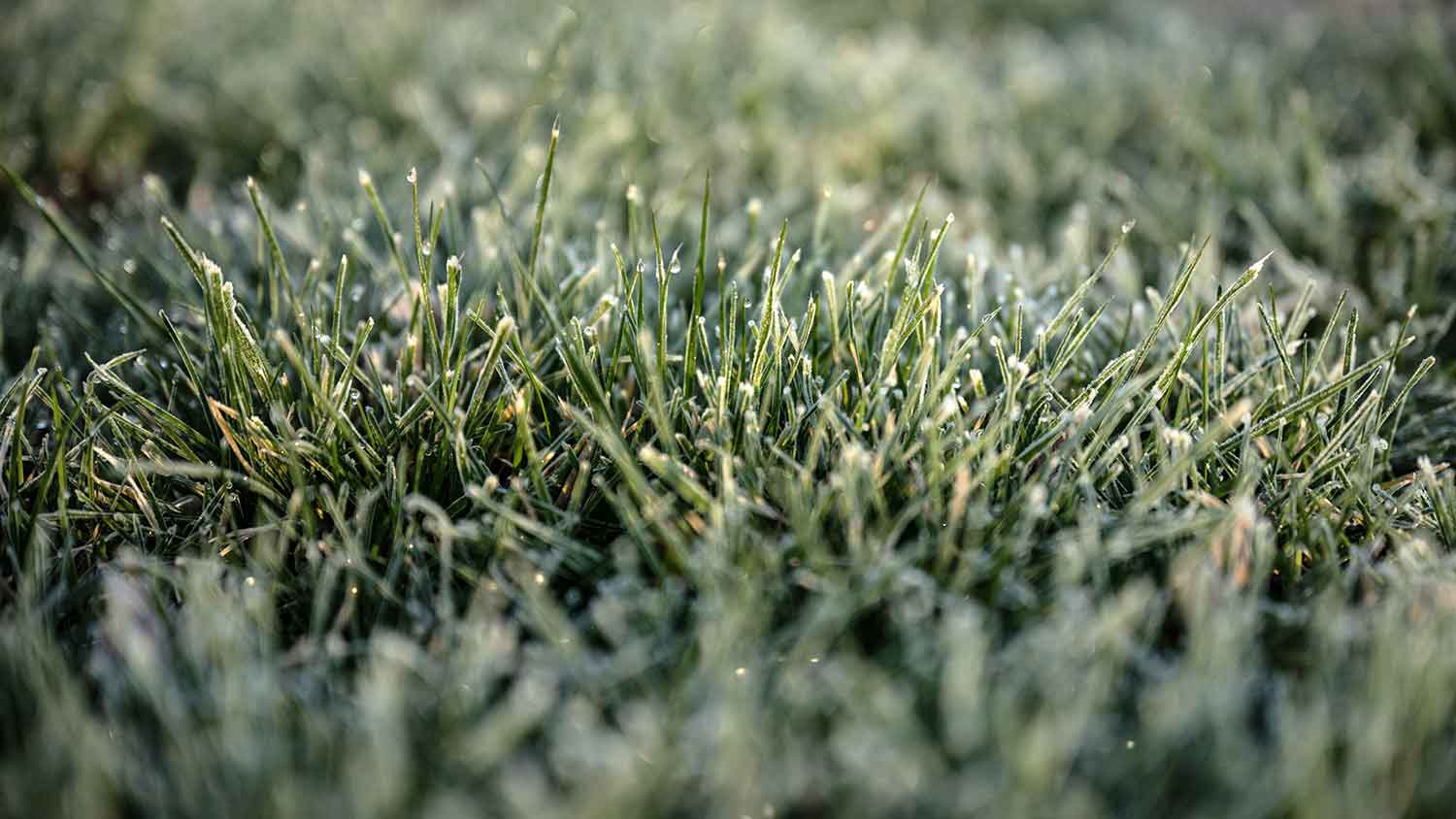
Kentucky bluegrass is a cool-season grass with brilliant color and soft texture. True to its name, Kentucky bluegrass has a bluish-green tint, and thrives in regions with frigid winters. This grass variety is a popular choice for lawns, providing a lush and comfortable outdoor space that withstands a variety of environmental stressors.
| Pros | Cons |
|---|---|
| Brilliant color | Slow growing |
| Soft texture | Above-average water needs |
| High cold tolerance | Flattens easily against foot traffic |
Best for:
Colder climates
Low- or high-traffic lawns
Pros of Kentucky Bluegrass
Kentucky bluegrass stands out for its soft texture and brilliant bluish-green color. It also boasts exceptional cold tolerance, making it a top-tier selection for regions with frigid winters. Its lush, velvety appearance enhances a lawn and creates vibrant curb appeal.
One of Kentucky bluegrass’ key strengths lies in its ability to self-spread and repair itself. It’s also resistant to common lawn pests that dig or burrow.
Cons of Kentucky Bluegrass
While Kentucky bluegrass is quick to self-spread and repair itself, the initial growth period of this grass variety is relatively slow. Its maintenance needs are also higher, needing above-average levels of water and regular fertilizer treatments to thrive.
Also, while Kentucky bluegrass has a remarkably soft feel to the feet, it is more susceptible to trampling. It’s still one of the best grass options for high-traffic lawns, but since it will eventually self-spread it may need more maintenance to balance out consistent foot traffic.
Bermuda Grass vs. Kentucky Bluegrass
Bermuda grass and Kentucky bluegrass are beautiful turf grasses that thrive under different conditions. Here’s how the two compare.
Appearance: Tie
In terms of appearance, both Bermuda grass and Kentucky bluegrass make a lush, beautiful lawn. Bermuda grass carpets a landscape in thick, medium to dark green turf, while Kentucky bluegrass has a unique bluish-green tint and an equally lush appearance.
Softness: Kentucky Bluegrass
When it comes to softness, Kentucky bluegrass is the solid winner. Its soft texture makes it perfect for a relaxed barefoot stroll.
Affordability: Bermuda Grass
Bermuda grass comes ahead in the affordability department. It’s a great choice for budget-conscious homeowners living in warmer climates looking to lower the cost to seed a lawn.
Foot Traffic Tolerance: Bermuda Grass
Bermuda grass bounces back fast after periods of trampling, making it more durable overall than Kentucky bluegrass. While Kentucky bluegrass can self-repair, it can flatten against foot traffic.
Cold Tolerance: Kentucky Bluegrass
Kentucky bluegrass—a cool-season grass—is objectively the better choice for growing in colder climates. Plus, it has exceptional tolerance to extreme cold. Bermuda grass is a warm-season grass, meaning it thrives in areas with warm climates and mild winters and will perish under extreme cold.
Heat Tolerance: Bermuda Grass
Bermuda grass thrives in warmer climates. Kentucky bluegrass, while it has moderate heat tolerance, is better suited for cooler climates.
Drought Tolerance: Bermuda Grass
Bermuda grass is one of the most drought-resistant grasses in the warm-season grass family, making it a great choice for areas with hot sun and little rain. Kentucky bluegrass requires above-average amounts of water to thrive, and will go dormant during extended drought periods. However, once it receives regular water again, it will bounce back.
Speed of Growth: Bermuda Grass
Bermuda grass has a fast growth rate—in fact, it’s one of the fastest-growing grasses in the warm-season grass category. On the other hand, Kentucky bluegrass is one of the slower-growing grasses.
Shade Tolerance: Kentucky Bluegrass
Kentucky bluegrass thrives in full sun to partial shade, making it a good choice for lawns that don’t receive full sun. On the other hand, Bermuda grass grows poorly in any shade, and needs full sun to thrive.
Resistance to Pests and Disease: Kentucky Bluegrass
Both Bermuda grass and Kentucky bluegrass can face challenges related to lawn problems like pests and disease. However, Kentucky bluegrass can self-spread and heal itself quicker than Bermuda grass.



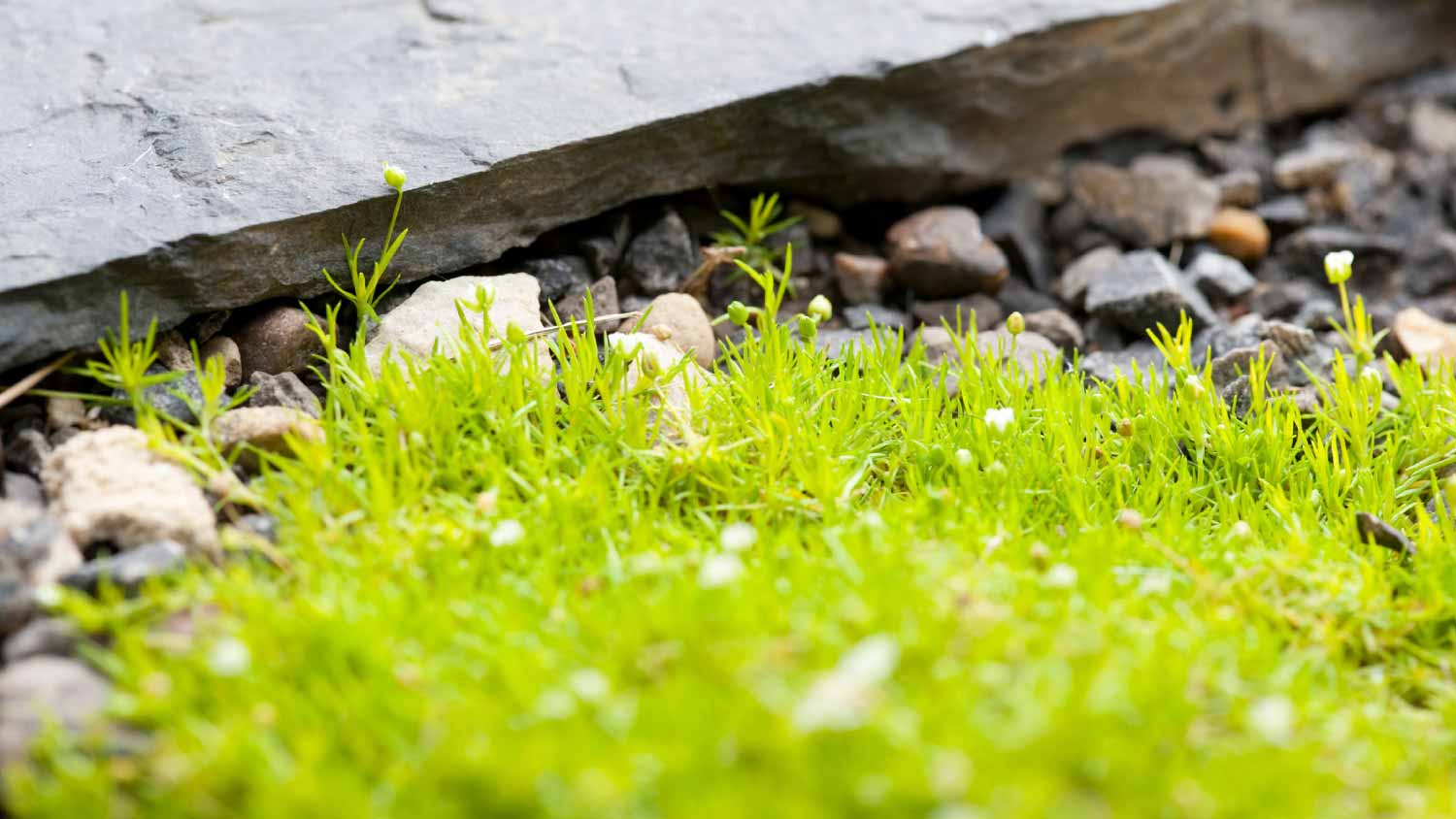
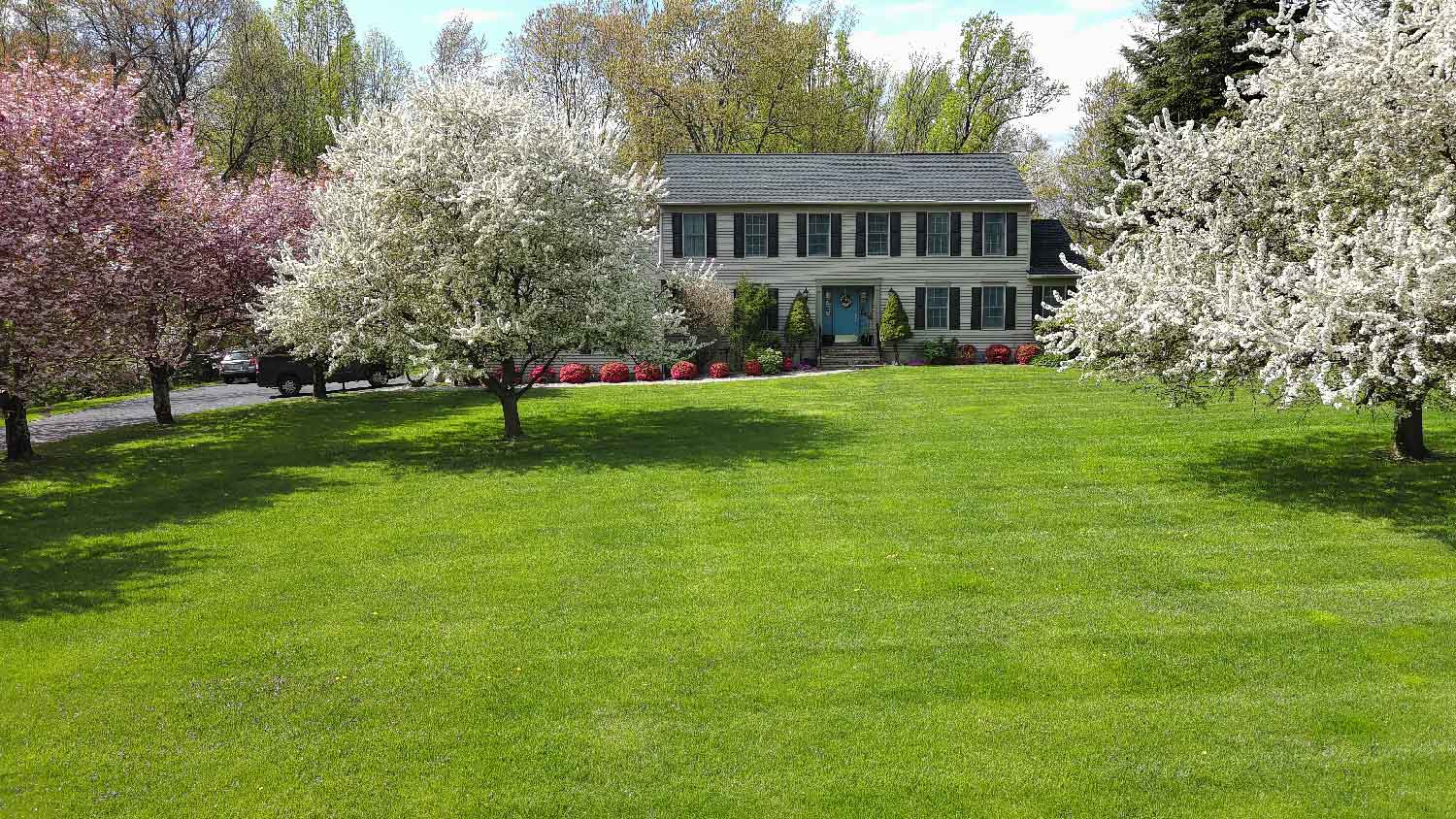
- What Is Bermuda Grass? Everything You Need to Know for a Healthy, Green Lawn
- When is the Best Time to Cut Grass? Why Turf Timing Matters
- 7 Tips for Keeping Your Grass Green During a Drought
- How to Kill Grass in Flower Beds: 8 Easy Methods to Try
- Pros and Cons of No-Mow Grass: What to Consider
- 9 Showstopping Types of Ornamental Grass to Liven Your Landscape
- 12 Tips for Taking Care of Your Backyard, From Pruning to Weed Prevention
- 6 Ways to Kill Grass On Your Lawn
- Does Grass Seed Go Bad? What You Need to Know About Planting Old Seeds
- How to Kill Orchard Grass in Your Lawn and Control It for Good



